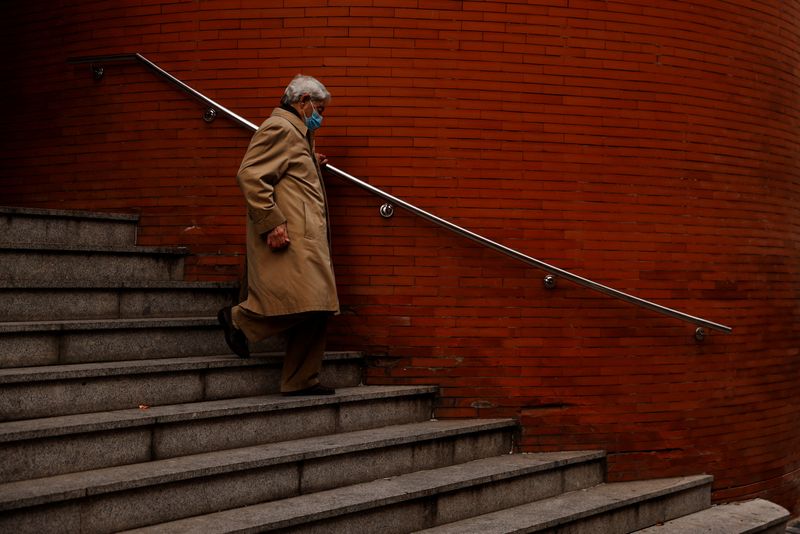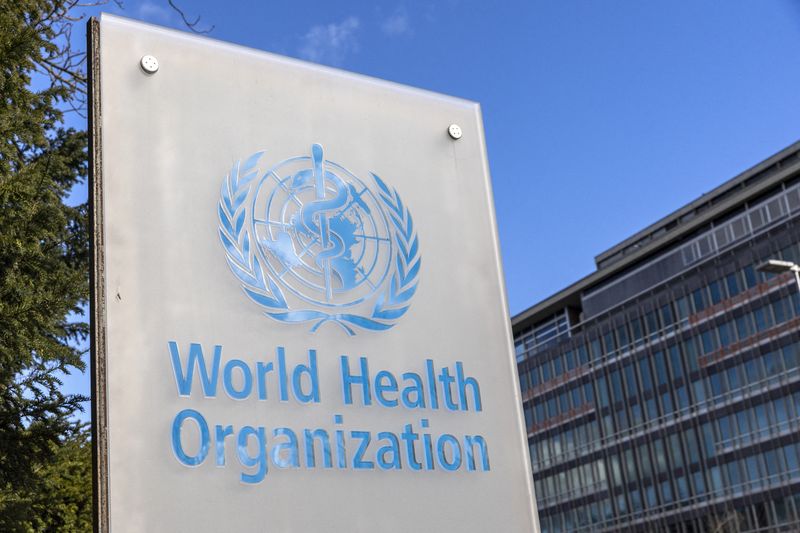By Jennifer Rigby
LONDON (Reuters) -Talks to draw up a global pact to help fight future pandemics have ended without a draft agreement by the expected deadline, but progress has been made, the World Health Organization said on Friday.
Negotiators from the World Health Organization's (WHO) 194 member states were hoping to have a final draft agreement by the end of Friday, with a view toward adopting the legally-binding text at the World Health Assembly later this month.
But they missed that deadline and will now continue negotiations over the coming weeks ahead of the assembly, the WHO, which is hosting the member-state led negotiations, said in a statement on Friday evening.
"This is not a simple exercise," said Precious Matsoso, the co-chair of the intergovernmental negotiating body leading the talks. "Getting this done means getting it right."
The aim of the document, alongside a series of updates to existing rules on dealing with pandemics, is to shore up the world's defences against new pathogens after the COVID-19 pandemic killed millions of people.
But there have been deep disagreements throughout the negotiating process, particularly around equity, and the timeline for reaching an agreement was always ambitious, experts said. The accord has also become politicised in some countries.
VACCINE SHARING
Some of the treaty's most contentious elements, including details around a “pathogen access and benefits system”, have already been pushed back for later discussion, with a deadline in two years. The system intends to codify sharing of material with pandemic potential, such as new viruses or strains, and ensure all countries benefit fairly from vaccines, drugs and tests developed as a result.
The existing draft treaty includes a clause asking pharmaceutical manufacturers to reserve 10% of such items to donate to the WHO, and 10% for the agency to buy at affordable prices to distribute in poorer countries during health emergencies.
A report earlier this week in the Britain's Telegraph newspaper said the UK would not sign a treaty the country says would force it to give away a fifth of its vaccines.
An official involved in the talks said while most countries supported a commitment to fairer vaccine access, a fixed percentage was not finalised.
An existing agreement that governs pandemic influenza also has a clause about selling vaccines at affordable prices or donating them to WHO. It allows for between 5% and 20% for both options, to allow for flexibility in negotiating with manufacturers.
This framework is what would be brought into play should the H5N1 strain of avian flu, which has raised alarm after being identified in cows in the United States as well as among other animals and birds, become easily transmissible between humans.
The WHO currently assesses that threat as low as there has been no evidence of human-to-human spread.
External experts said losing political momentum for the pandemic accord was a risk if there were long delays, particularly in an election year for many countries. But they said it was still worth fighting for the treaty.

"There are proposals on the table that, if they went the distance, could make a difference," said Michelle Childs, director of policy advocacy at the Drugs for Neglected Diseases Initiative (DNDi).
"Our collective global health and security perhaps would be even more vulnerable if the agreement fails than if the process never began," said Alexandra Phelan, a global health law expert at Johns Hopkins University in Baltimore.
